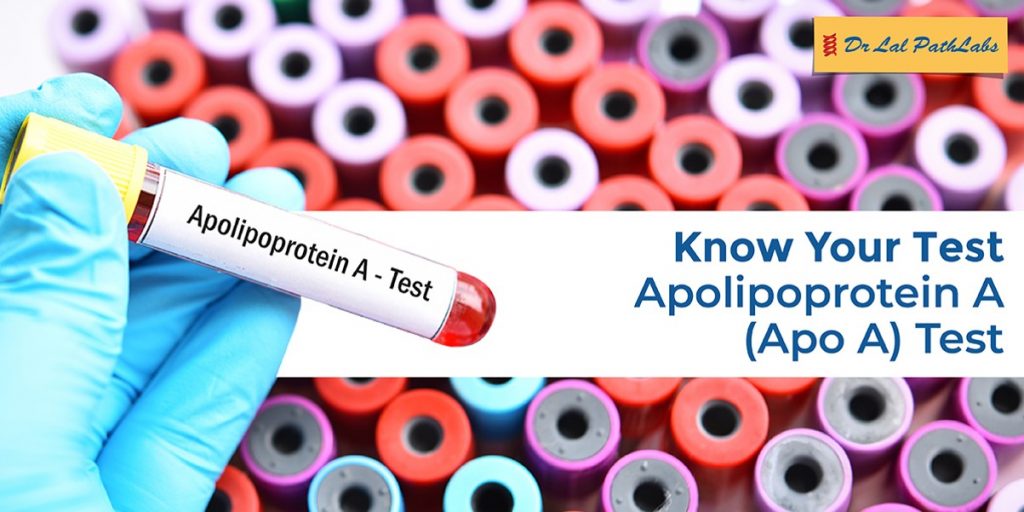Know Your Test – Apo A (Apolipoprotein A)
What is Apo A?
Apo A, also known as Apolipoprotein A, is a protein component of lipoproteins, which are complex particles that transport cholesterol and triglycerides (fats) through the bloodstream.
Lipids alone cannot dissolve in the blood. Apolipoproteins are proteins that combine with lipids to make lipoprotein particles that can transport lipids throughout the bloodstream. Apolipoproteins provide structural integrity to lipoproteins and shield the water-repellent (hydrophobic) lipids at their center.
There are different types of lipoproteins, such as high-density lipoprotein (HDL) and low-density lipoprotein (LDL), and Apo A is specifically associated with HDL particles.
Why do I need an Apo A test?
ApoA plays a crucial role in the metabolism of lipids in the body. It is the main structural protein of HDL particles and is responsible for various functions, including reverse cholesterol transport, which involves removing excess cholesterol from peripheral tissues and transporting it back to the liver for excretion. HDL is often referred to as “good cholesterol” because it is associated with a lower risk of cardiovascular diseases.
An apo A test may sometimes be ordered to:
- Help diagnose inherited or acquired conditions that cause apo A deficiencies.
- Help evaluate people who have a personal or family history of heart disease and/or high cholesterol and triglycerides or low HDL.
- Monitor the effectiveness of lifestyle changes and lipid treatments.
How is Apo A Test Done?
Apolipoprotein A-I (apo A-I) may be ordered, along with other lipid tests, as part of a profile to help determine a person’s risk of developing cardiovascular disease (CVD).
The Apo A test measures the level of Apo A in the blood. It provides important information about the amount of HDL cholesterol and can help assess the risk of heart disease.
What do Apo A Test Results Mean?
Low levels of apo A are usually associated with low levels of HDL and impaired clearance of excess cholesterol from the body. Low levels of apo A, along with high concentrations of apo B, are associated with an increased risk of cardiovascular disease. High levels of apo A are considered protective and can be independent of HDL levels.
There are some genetic disorders that lead to deficiencies in apo A (and therefore to low levels of HDL). People with these disorders tend to have abnormal lipid levels, including high levels of low-density lipoprotein (LDL – the “bad” cholesterol). Frequently, they have accelerated rates of atherosclerosis. These genetic disorders are the primary causes of low apo A.
Changes in levels of apo A may also be associated with other factors. Some of the conditions that contribute to decreases or increases in apo A are listed below.
Apo A may decrease with:
- Chronic kidney disease
- Smoking
- Uncontrolled diabetes
- Obesity
Apo A may increase with:
- Physical exercise
- Pregnancy
- Weight reduction
- Use of statins
It’s important to note that the interpretation of Apo A test results should be done by a doctor who can consider your overall health, medical history, and other factors to provide accurate guidance and recommendations. The Apo A test is often used in conjunction with other lipid profile tests (such as LDL cholesterol, total cholesterol, and triglycerides) to get a comprehensive picture of your cardiovascular risk. If you’re concerned about your heart health, it’s best to discuss the results with a doctor who can provide personalized advice based on your specific situation.















